
According to HelpAge International, older people have been key to helping 150 000 people recover from Typhoon Haiyan. Their 2014 report titled, Typhoon Haiyan one year on: older people key to recovery, shows that new skills have been acquired, stronger homes built, and farming diversified using global aid. Significantly, the report indicates that older people play a big role in helping communities on the road to recovery.
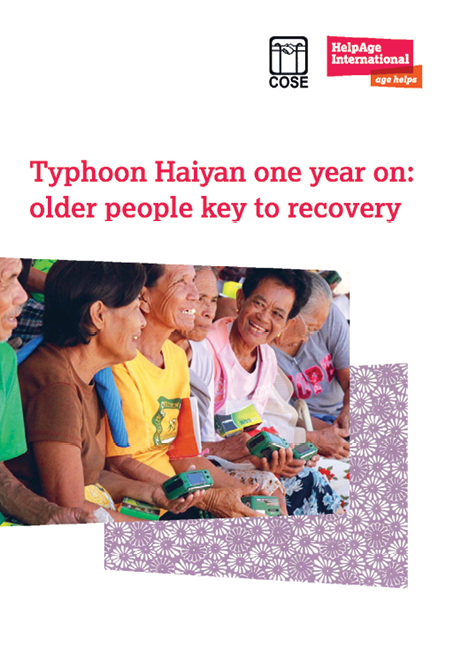
The report by HelpAge International and the Coalition of Services of the Elderly was released in November 2014.
Based on the records provided by the Philippine Statistics Authority, approximately 1.27 million people over the age of 60 were affected by the typhoon, or eight per cent of the reported 16 million people affected1, many losing their homes, livelihoods and loved ones.
Before Typhoon Haiyan, nearly 65 per cent of older people were working but many were not included in cash-for-work programs after the disaster.2
Poverty levels3 and malnutrition4 rates in Leyte province were high and poor access to information compromised people’s ability to receive help. For example, 75 per cent of older people interviewed by HelpAge and UNHCR did not know that medical services were available free of charge.5
As a result, HelpAge International and their local partners, the Coalition of Services of the Elderly (COSE) stepped in to ensure older people were a key part of recovery efforts. The chief objectives were to ensure older people had regular incomes, shelter, healthcare and access to their rights and entitlements.
Working with local organisations, the agencies provided cash transfers, shelter repairs, training in carpentry and geriatric care, a mobile community health service, and ensured community pharmacies had access to appropriate and affordable medicines. They also helped older people access legal documents and senior citizen ID cards.
Older carpenters were trained in new building techniques, resulting in stronger shelters with improved resistance. Those who had lost their tools were provided with replacements to ensure they could resume work.
At least 10 000 older people received cash transfers, with 11 000 receiving cash and repair kits to build new homes. Rice seeds and fertilizer were given to 7 000 farmers. Cash helped kick start businesses ranging from selling fish and food to taxi services, pig and poultry farming, and fishing.
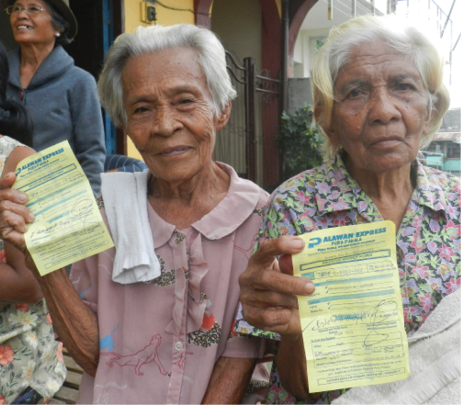
Image: Aldrin Norio/HelpAge-COSE
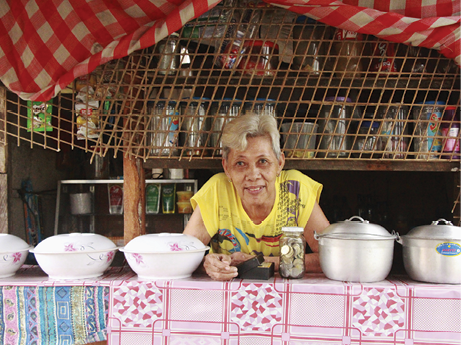
Image: Hazel Ayne Garcia/HelpAge-COSE
Cash transfers helped people buy what they needed and keep businesses going.
The support enabled older people to help one another and improve their own resilience in the aftermath of the typhoon and encouraged them to actively participate in the process of rebuilding age-friendly communities.
Older people were encouraged to join training in psychosocial support and present radio programs about some of the issues being discussed. Many older people said that these activities made them realise how they could contribute, helping them to feel part of society again.
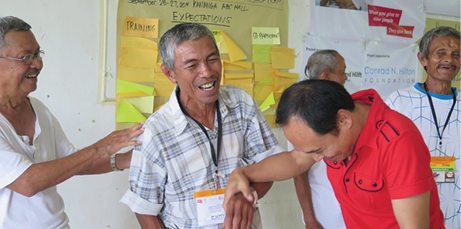
Image: Robyn Lacson/HelpAge-COSE
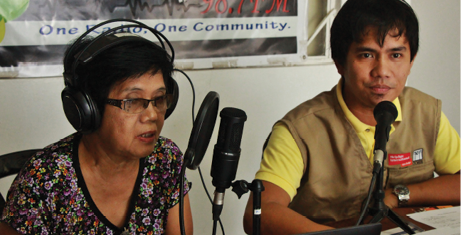
Image: Hazel Ayne Garcia/HelpAge-COSE
Involvement in psychosocial support and radio programs provided valuable opportunities for contribution for older people.
Mr Ian Clarke, HelpAge International and Coalition of Services of the Elderly Emergency Programme Director in the Philippines said ‘In any emergency, helping communities to meet their most immediate needs as well as aiding longer-term recovery is a challenge.
But we have overcome these challenges with the active involvement of older people themselves as well as with the support of their organisations,’ he said.
The Confederation of Older Persons Association of the Philippines (COPAP) also contributed in the success of the acute emergency relief phase through psychosocial support to older people, identifying specific needs and helping to distribute aid.
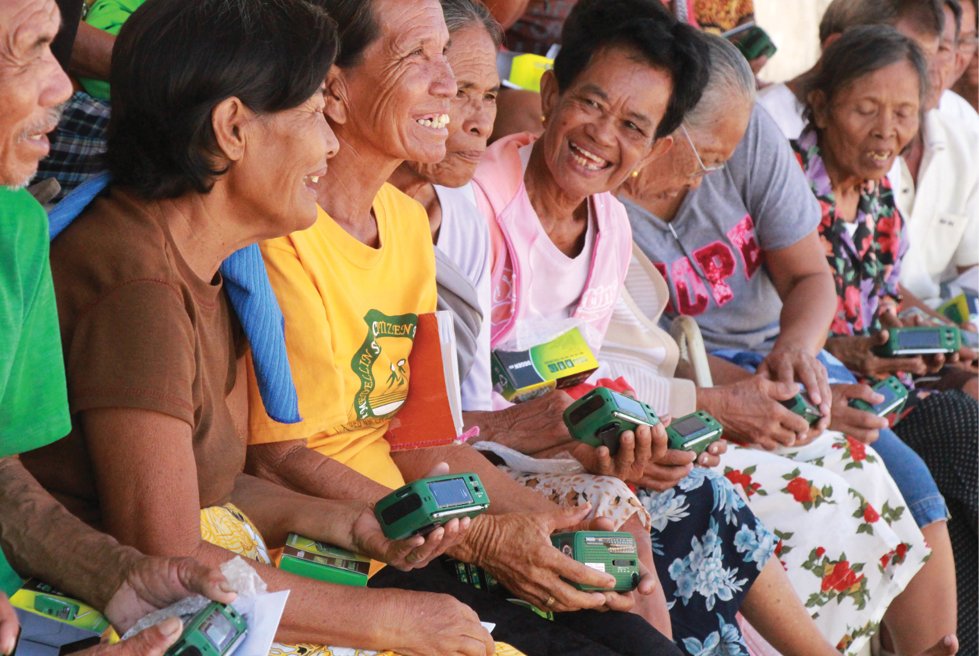
Image: Carolyn Canham/HelpAge-COSE
Distribution of radios helped people get vital information.
HelpAge International helps older people claim their rights, challenge discrimination and overcome poverty, so they can lead dignified, secure, active and healthy lives. www.helpage.org
The Coalition of Services of the Elderly (COSE) helps older people to continue living in and contributing to their communities.
1 See www.helpage.org/newsroom/latest-news/older-people-disproportionately-affected-by-typhoon-haiyan.
2 See Assessment of Older People - Super Typhoon Yolanda, UNHCR/HelpAge International, December 2013.
3 See www.nscb.gov.ph/ru8/FactSheet/FS_on_Poverty.pdf.
4 See HelpAge secondary data, Typhoon Haiyan, 22 November 2013.
5 See Assessment of Older People - Super Typhoon Yolanda, UNHCR/HelpAge International, December 2013.